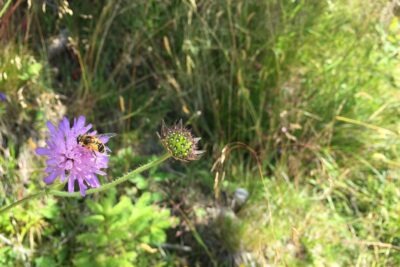Your cart is currently empty!
At Wildernis we have been doing our best for years to be as sustainable as possible for both our plants and products and our business operations. What does that mean? Why are we doing that? And how do we do that?
Sustainable and organic houseplants
But a plant is always organic, right? It’s green and it’s growing?! That’s right, but many people don’t realize that most indoor plants are sprayed preventively with toxic substances against critters and that fertilizers are used to quickly grow the plants.
The use of chemicals is bad for the environment outside your home, but in the case of indoor plants you also bring the pesticides into your home.
Plants that have been propagated quickly with fertilizer can be compared to the ‘plofkip’. Such a floppy plant is not happy and healthy and will also have a harder time surviving in your home, be more susceptible to bugs and diseases and will probably arrive at your home on exhausted soil.

That’s why Wildernis only sells houseplants that are grown as sustainably as possible, or even organically grown. Click here to learn the difference between sustainable and organic plants.
All plants in the Wildernis store and webshop come from growers with at least the MPS-A or A+ sustainability certification.
All plants are hand-selected every week. First, we look at whether they have the MPS A/A+ label, and then we check how beautiful and healthy the plant is. This way, we can guarantee that the plants you buy from Wildernis meet the highest achievable sustainability standards available today—beautiful, healthy plants, inside and out.
Learn more here about MPS certification for sustainable plant cultivation.
Organic Outdoor Plants and Bulbs
By buying organic or pesticide-free garden plants and bulbs, you truly help bees, butterflies, and other insects!
At many garden centers or supermarkets, you’ll often see a sign in the plant that says “good for bees and butterflies,” but the plant is still treated with pesticides. You think you’re doing something good, but unfortunately, that’s not the case.
So it’s better to buy an organic plant or bulb—then you can be sure you’re actually doing something beneficial for butterflies and bees.
Read more about this in Greenpeace’s report: Poisonous Plants at the Garden Center.
Every spring, summer, and fall, Wildernis offers organic or pesticide-free plants on our little sidewalk space on the Bilderdijkstraat. These plants may be smaller in spring than what you’re used to seeing at large garden centers. That’s because they aren’t raised in heated greenhouses, but outdoors in the cold soil.
This is better for the environment because there’s no need for heating, and the plants grow stronger and survive better in the place they’ll eventually be planted: outside.
Sustainable Pots and Accessories
Sustainable plants deserve sustainable and responsibly produced products. Wildernis aims to offer beautiful plants, pots, and accessories in the most sustainable way possible for our customers.
Over the years, Wildernis has designed and produced several of its own products to expand the selection of sustainable pots and accessories in our store.
Our own pot line is produced in the Netherlands, using German clay and lead-free glazes. The halo hanger is manufactured in a zero-emissions factory in the Netherlands. Wildernis terrariums are assembled as sustainably as possible in our shop. Macramé hangers are handmade from 100% cotton in a social workplace in Amsterdam West.
We also do our utmost to find beautiful pots produced in Europe, so we can be sure that the basics—like working conditions, environmental regulations, and transport—are in good order. We only sell plastic pots if they’re made from recycled materials.
About 70% of our pot and accessory collection is produced in Europe, including in the Netherlands, Portugal, Germany, and Romania. Every year, we work to increase this percentage.
Why do we do this?
Pots produced in Europe are made under good working conditions for employees. The production processes and materials used meet European standards. Since the pots also need to be transported to the Netherlands, this adds environmental impact. By sourcing from within Europe, all these factors are better managed—minimizing harm to people and the planet.
Glazes containing lead or other banned substances are still used in parts of Asia. While these glazes may produce beautiful effects, they’re toxic—even after being fired. The fumes released during firing are dangerous to factory workers and also harmful to the environment surrounding the factory.
Sustainable business operations
We reuse cardboard and packaging materials from deliveries for sending products from our webshop. Only ecological means are used for cleaning. All lamps and grow lights that we use are LED and our rooms have infrared panels for heating. We use time switches for energy-intensive appliances. Outdoor plants that we can no longer sell are given free of charge to public neighborhood gardens in Amsterdam.
We also work together with local illustrators, designers and small Dutch makers. Close to home and as sustainable as possible.
